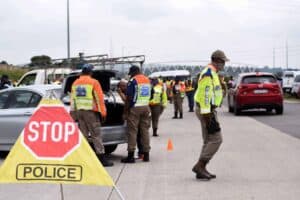The credibility of the State's scientific expert was questioned in the drunken driving case of musician Arno Carstens on Wednesday.

Expert witness Tim Laurens, head of forensic toxicology at the University of Pretoria, has been testifying in the Cape Town Magistrate’s Court since last year on his analysis of Carstens’s blood-alcohol results.
His analysis matched the State’s that of a 0.20 percent blood-alcohol level. The legal limit is 0.05 percent.
Carstens has pleaded not guilty to a charge of drunk driving, alternatively driving with a blood-alcohol level of 0.20 percent.
Milton de la Harpe, for Carstens, asked during cross-examination whether Laurens was registered with the SA Council for Natural Scientific Professions (SACNASP).
Laurens replied that he registered in 2008 in the field of chemical science. He was also registered with the Health Professions Council of SA as a biological scientist.
De la Harpe said chemical science registration did not mean he was qualified to testify on any aspect of microbiology.
“In terms of this [SACNASP] act, you are not registered to testify in the field of microbiology and are prohibited to even consult,” the lawyer said.
He had previously put it to Laurens that blood samples could be deemed unreliable because of the presence of micro-organisms, such as bacteria, viruses, and fungi.
Laurens replied that there were many grey areas in science.
“Science is a multi-disciplinary thing and there is a great overlap. Biochemistry is also chemistry and in my opinion I am very much qualified to testify on the formation of ethanol from glucose.”
Laurens said, however, that he had never created the impression he was an expert in microbiology. He had simply given an opinion where asked, based on literature he had read.
De la Harpe said the SACNASP code of conduct also barred a member from acting outside a realm of expertise.
“In terms of the code of conduct, you should also not undertake natural scientific work for which your education, experience or background have not rendered you competent to perform,” the lawyer read out.
In re-examination, prosecutor Andy Hess asked the scientist what qualification was needed to analyse blood, as he had done.
Laurens replied that one needed a background in analytical chemistry and that once a sample had been analysed for ethanol, one could comment on an increase or decrease in ethanol.
He said he had a PhD in analytical chemistry and a Masters’ degree in applied toxicology.
The trial continues.
– Sapa






